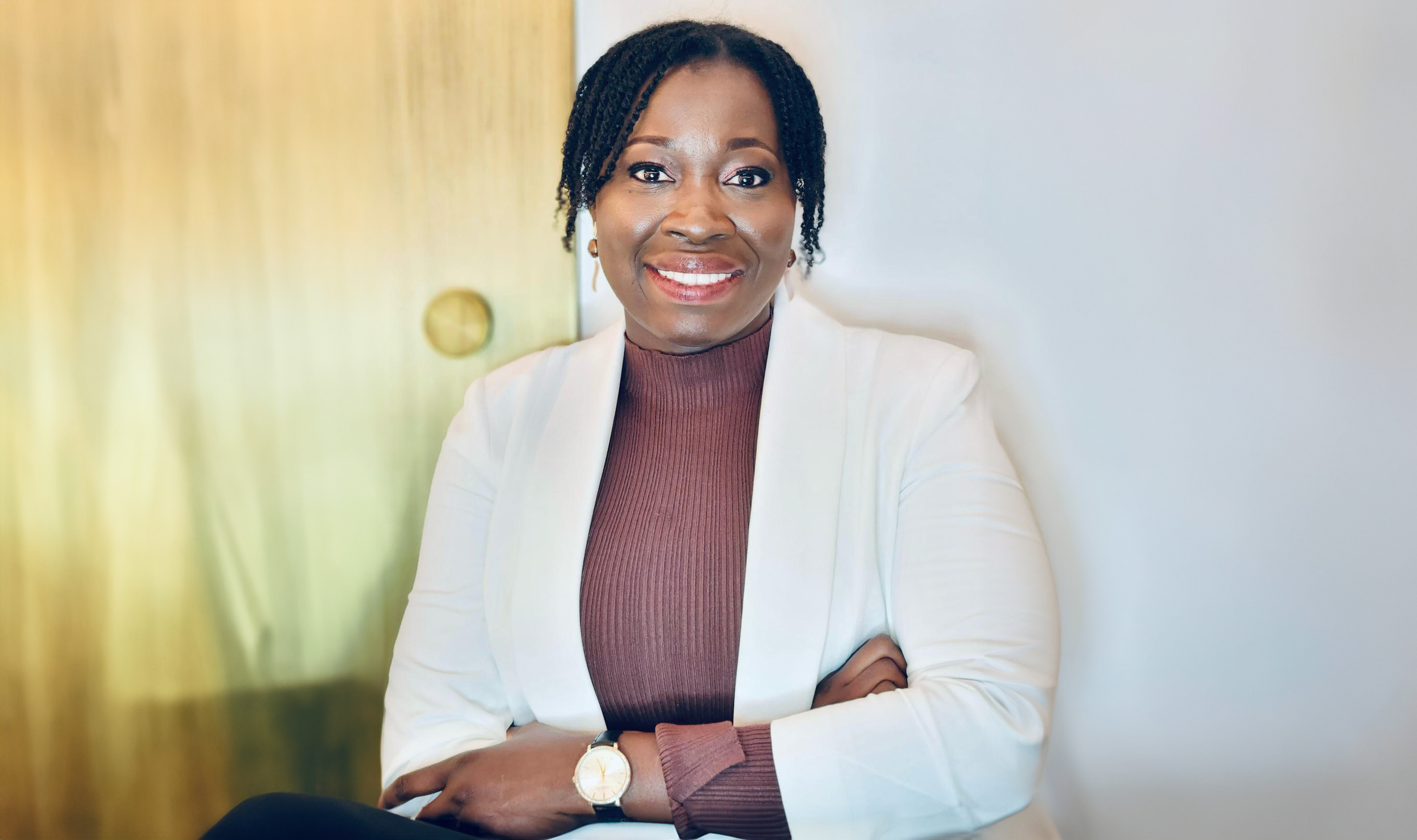Award-winning project manager advocates for gender inclusion in schools and universities

Gender diversity targets are nothing new to the water community, as businesses nation-wide strive towards more inclusive workplace cultures. While improvements have been made, one water professional says this advocacy work must continue, and find its way into schools and universities, too.
In May this year, TasWater Renewals Project Manager Cecelia Catherine Loppy received the prestigious National Association of Women in Construction Crystal Vision Award, an accolade celebrating those who actively promote the career progression of women in construction.
On receiving the honour, Loppy said the award has inspired her to continue her work advocating for girls and women to follow their passion and apply their skill sets within construction.
"We had nine amazing finalists from across Australia representing all states and territories. To have been awarded as national winner was a humbling, emotional and unexpected moment for me,” she said.
“It inspires me to keep doing my best, inspiring the younger generation, and encouraging more women with a passion for the construction industry to step forward courageously.
“It was an incredible honour and privilege to be in the room with such amazing talent. Women are shifting paradigms and advocating for change and improvement for the betterment of our industry.”
At TasWater, Loppy manages construction projects for treatment plants and pump stations, delivering excellent outcomes for the benefit of the community.
“Being a Project Manager at TasWater is more than a job – it’s a chance to make a tangible, positive impact on communities. It’s about turning plans into reality and contributing to something greater,” she said.
In terms of her advocacy work, Loppy said there has been a lot of discussion recently about the barriers facing women who want to enter male-dominated fields and workplaces – an important conversation, and one that needs to continue.
“A few years ago, I would say the biggest challenge for women was overcoming the fear of being accepted within male-dominated workspaces. But, as women, if we listen too much to the negatives, it can hold us back from stepping into a career where we can add value,” she said.
“Yes, there are barriers when it comes to women entering the construction industry. There is fear that it’s a man’s world. And it is. Men are the founding fathers of the construction industry.
“But many women are gifted in skills that align with the industry, and we need to work hand in hand with men to ensure women have the opportunity to contribute to building our communities.”
A diverse village
Loppy said her thinking around diversity and inclusion is inspired by the world itself, a world she describes as “a diverse village”.
“We have different people with different experiences, racial backgrounds, ethnicities, languages, different ways of life. If we turn our focus to the world for a moment, we can see clearly that our world represents difference – diversity itself,” she said.
“We all live here in this diverse village, which means we cannot have businesses or workplaces that don’t reflect our world. We can learn a lot from simply sitting back and watching the diversity of the world – how different talents and opinions work together to improve things.”
Gender diversity in the workplace can mean many things, Loppy said, but there are now plenty of benefits that have been identified when it comes to creating inclusive workplaces.
“Bringing the way women think and tackle tasks into the workplace, an approach that often produces excellence, ensures we not only include different perspectives, it also improves the way we approach tasks and challenging situations,” she said.
“And when different approaches and ways of thinking come together, it’s a great space to achieve more innovation and develop robust problem solving. Further, focusing on attracting and retaining women also increases the talent pool.
“It enhances collaboration and improves staff retention. It can also contribute to economic performance, not just within businesses, but across sectors and the nation as a whole.
“But one of the best outcomes of promoting gender diversity for a business is the effect it has on enhancing an organisation’s reputation. When we proactively promote and foster diversity in our teams, it really sets us above the rest.
“When people are looking for a place to apply their skill sets, companies that showcase diversity in their teams and their thinking are more attractive places to work.”
Importance of mentoring
Recalling studying construction and building at university, Loppy said her experience was not the most welcoming – a disappointing distraction from her study – but she found the courage to continue towards her dream career with the help of a mentor.
“I was the only female student in a class of 60, studying building and construction. It was a fearful experience. There were a lot of barriers, I was told that perhaps it wasn’t for me. And I almost gave up. All the messaging was heavily impeding my passion,” she said.
“I was explicitly advised by one of my lecturers to study a different course. And I was studying at a higher institution in Melbourne. This difficulty impacted my mental health greatly.”
Loppy said one of her most important pieces of advice to other women struggling through barriers into traditionally male-dominated workforces is to work through these issues with a trusted mentor.
“While we are a minority in male-dominated fields, there are women that have already walked the path before you. When I was studying construction, I had a mentor that was very helpful in guiding me to stay focused on achieving my goals and pushing through,” she said.
“It really helped a lot. My mentor had also faced barriers and showed me that, with a bit of determination and resilience, it was absolutely possible for me to enter into construction and to be successful in my work.
“This is why I am so passionate about talking to students in school and university, because that is where the work needs to start.”
Starting in schools
Recently, Loppy returned to her former high school in her home community, Banjul, The Gambia, to launch an advocacy program to help empower girls interested in technical fields of study.
“We gathered together over 250 students that were interested in technology, science, mechanics and construction, and about 60% were female students,” she said.
“Often, we think this advocacy is all about talking to the girls, but it’s also about talking to the boys. It’s not just about encouraging girls to be resilient and courageous, it's also about encouraging the boys to strive towards inclusive mindsets.
“I shared my experience with the boys about how my classmates and teachers had made me feel uncomfortable and doubt my capability. Addressing those boys as a successful project manager, I could see they were understanding the importance of their attitude towards girls.
“The fact is that girls turn up to these spaces because they want to be involved. It’s a study pathway that speaks to them, that they want to be a part of making a difference.”
Loppy said her home community is rich in culture, but that her work in advocating for girls and women there is about opening discussions around continuing that rich culture, while also supporting women to enter into fields that are traditionally male-dominated.
“When I was growing up, I hardly ever saw women going into male-dominated workforces. There is a cultural shift occurring in my community, we have strong cultural traditions. The shift is not about breaking the culture, but showing that we can have both,” she said.
“We can have a strong culture that also allows women to pursue their dreams.”
Loppy said that, while advocating for diversity in workplaces is great, her focus is on advocating among students, as that is where the challenge starts.
“We can’t wait for people to enter the workforce before we address these issues, it starts much earlier than that. If we don’t do this work in schools, young women emerge from school and university discouraged,” she said.
“Each of us with passion and skill sets have a place within our chosen career. But there is still work to do to make sure people feel comfortable in the places that align with their skill sets.”


